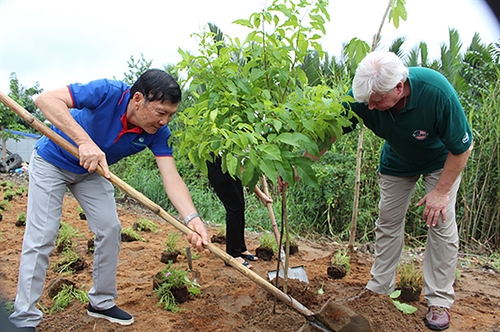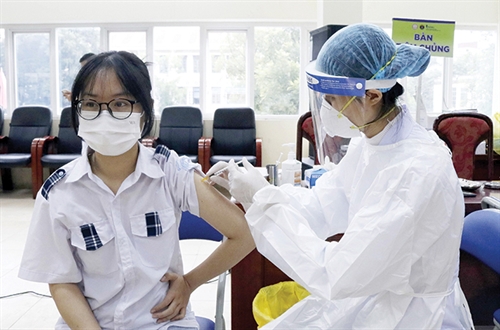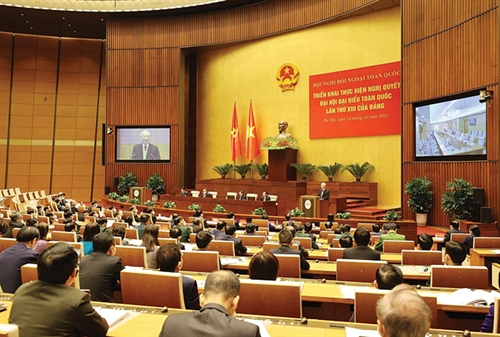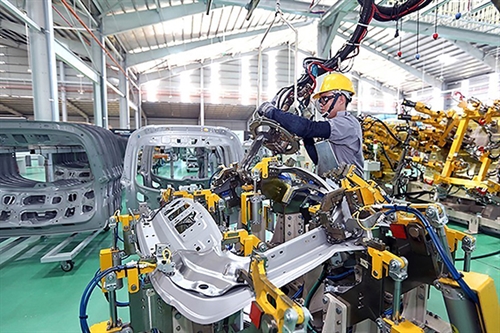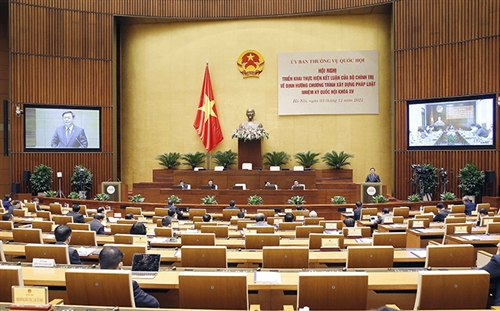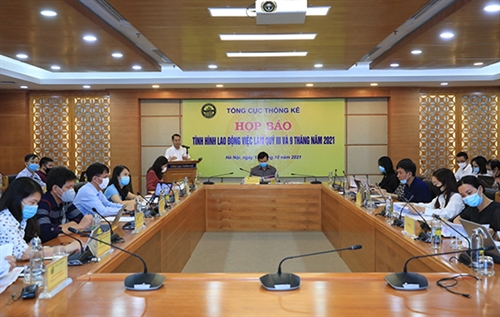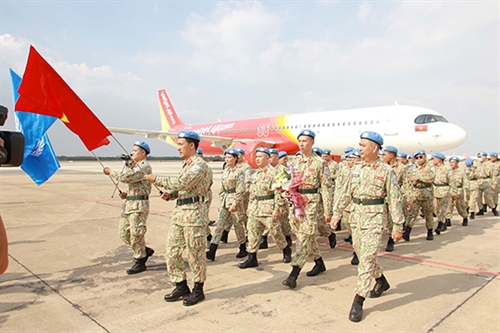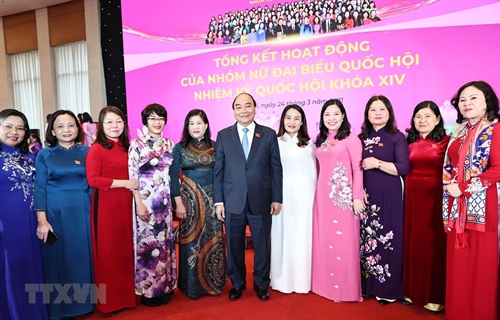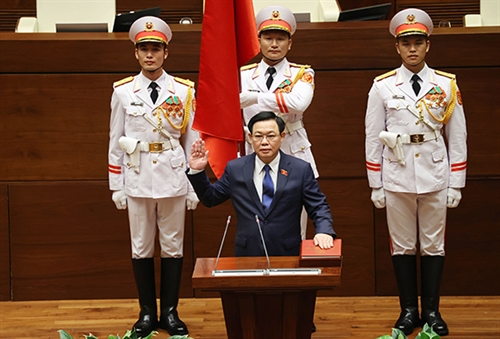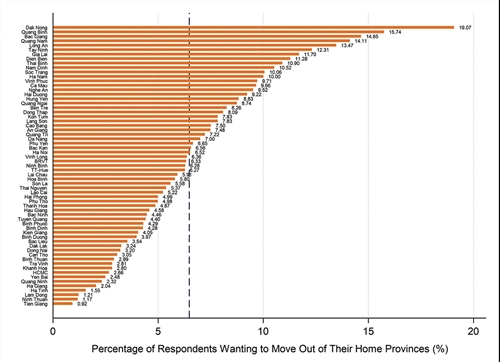Deputy Foreign Minister Pham Quang Hieu spoke to The gioi & Viet Nam (The World and Viet Nam Report) online newspaper about Vietnam’s active participation in the field of international law and the strategy of raising the country's voice in this field, contributing to improving national prestige and position.
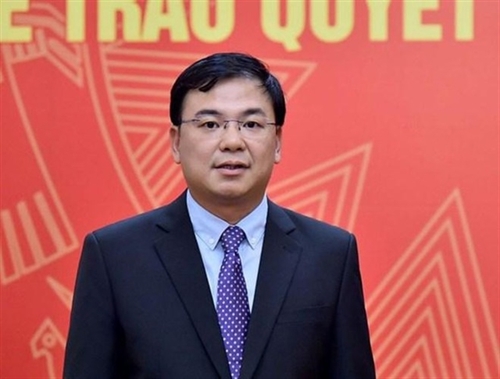 |
| Deputy Foreign Minister Pham Quang Hieu |
Could you tell us about the specific steps Vietnam has taken to promote and uphold international law and also protect national interests?
Vietnam always attaches importance to and promotes the application of international law to protect national interests. The 2013 Constitution affirms that Vietnam is a responsible member of the international community, abiding by the United Nations Charter and international treaties to which Vietnam is a member.
From mainly absorbing and participating in international organizations and previously formed international treaties, applying international law to protect national interests against wrong and hostile views, we have step by step participated in contributing to the development of the rules of the game, to law codification, and to the development of international law in order to best protect the national interests and contribute to promoting peace, security and international cooperation for sustainable development.
In recent years, Vietnam has constantly increased its participation in multilateral legal forums, such as the Legal Committee (Sixth Committee) of the United Nations General Assembly and the Asia-Africa Legal Consultative Organization (AALCO).
Notably, we won elections in highly competitive elections, gaining the right to be present in important international legal mechanisms such as the Commission on International Trade Law (UNCITRAL) and the International Law Commission (ILC).
The above-mentioned legal forums not only play the role of researching and codifying international law, but also those to consider and study newly arising legal issues, which are closely related to the interests of foreign countries, such as sea and ocean issues, climate change, environmental protection, cyber security, and investment dispute settlement.
At these forums, we promptly gave our views in line with Vietnam's interests and policies, protecting the national interests early and from afar, and at the same time showed a sense of responsibility and positivity for the common interests of the international community.
The fact that we promote practical legal topics that are closely related to the interests of developing countries such as the environment, epidemics and climate change is supported, appreciated and increasingly trusted by countries.
At the same time, the legal staff of Vietnam and foreign affairs officers are also given the opportunity to grow, reaching a level that is close to the region and the world in terms of both expertise and skills.
We also have experts working at international legal agencies, including the ASEAN Secretariat, the International Court of the Law of the Sea (ITLOS), the Permanent Court of Arbitration (PCA), etc. Especially, in two consecutive terms, we have representatives at the United Nations International Law Commission. It is a testament to the international community's support and trust for Vietnam, affirming our country's increasing position and prestige in the international arena.
Recently, there has been a lot of good news related to international law with Vietnam. For instance, Ambassador Nguyen Hong Thao was re-elected as a member of the United Nations International Law Commission for the 2023-2027 term and the Permanent Court of Arbitration (PCA) opened an office in Hanoi. What do these events mean and what message does Vietnam send in the field of international law?
The United Nations International Law Commission is the agency with primary responsibility for the codification and progressive development of international law, and is the cradle of the conventions that are the "backbone" of modern international law.
Countries have always respected and considered this Commission as one of the important legal forums, converging experts representing many different legal backgrounds.
Ambassador Nguyen Hong Thao's re-election for a second term with a high number of votes, in an extremely competitive election, reflects the international community's trust and appreciation for the capacity and quality of the Vietnamese candidates in particular and the prestige and position of Vietnam in general in the legal field.
At the same time, this also shows that the international community expects Vietnam to make more quality contributions to the codification and progressive development of international law.
Meanwhile, the PCA is one of the oldest jurisdictional mechanisms in the world, resolving disputes between countries in many areas, including the Law of the Sea, between the state and investors, as well as between international and private organizations through various forms of arbitration, mediation and conciliation.
Therefore, PCA opening a representative office in Hanoi is of great significance.
First, the event that the PCA established a Representative Office in Vietnam, the fourth office outside the head office in The Hague (Netherlands), once again affirms the correct policy of the Party and State on comprehensive and extensive global integration, including legal integration.
Second, Vietnam's facilitation for the PCA to set up an office in Hanoi reflects Vietnam's consistent message of supporting the principle of peaceful settlement of international disputes and upholding international law.
Third, this cooperation facilitates access to international legal services of PCA in the region and in the world, demonstrating the recognition and trust of the international community for the contributions of PCA in the field of international law, proving Vietnam's position on the international legal map.
Fourth, the PCA Office in Hanoi opens up opportunities for training, capacity building and professional skills for Vietnamese legal officers, creating conditions for us to enhance the effectiveness of protecting national interests on the basis of respect for international law.
What are the plans of the foreign affairs sector to continue to raise the voice of Vietnam, as well as to actively become the builder and shaper of the game in the field of international law?
In order to raise Vietnam's voice in the field of international law, the Ministry of Foreign Affairs will prioritize the implementation of the following tasks.
We will continue to coordinate with ministries, departments and branches to research and develop our policies and views on important and newly arising legal issues, closely related to the interests of Vietnam and developing countries, such as the issue of national sovereignty in cyberspace and the problem of cybercrime.
In a situation of many changes in the world, profoundly affecting international relations and creating non-traditional challenges to international law after many decades, it is important to prepare the view for newly arising legal issues in order to ensure national interests.
At the same time, we need to strengthen and further promote our presence at international legal forums, participate deeply and contribute more substantively to the research and development of draft reports and conventions, which are the foundation for future international law.
At the same time, the form of participation also needs to be more diverse. We will consider proactively or coordinate with representatives of other countries to propose and promote initiatives, taking on positions such as rapporteur, researcher, and leader of working groups.
We need to continue to train and develop a team of international legal staff in terms of quality and quantity with a long-term orientation, creating conditions for Vietnamese legal staff to interact and work directly at research institutions and adjudication mechanisms in order to cultivate and accumulate knowledge, skills and practical experience, create connections and build an international network of legal experts at home and abroad.- (VNS/VLLF)
